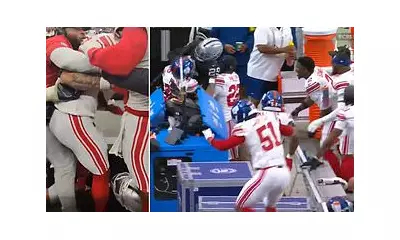
WNBA Commissioner Cathy Engelbert has found herself at the centre of a growing controversy after defending the league's marketing strategy against criticism from Barstool Sports founder Dave Portnoy. The dispute highlights the ongoing tension between traditional sports administration and new media personalities.
The Portnoy-Engelbert Clash
Dave Portnoy, the outspoken founder of Barstool Sports, publicly criticised the WNBA's marketing efforts, suggesting the league wasn't doing enough to promote its star players. In response, Commissioner Engelbert defended the league's approach, stating they were "working hard" to build sustainable interest in women's basketball.
Engelbert emphasised the WNBA's focus on long-term growth rather than short-term viral moments, pointing to increasing attendance figures and television ratings as evidence of progress. However, critics argue the league has been slow to capitalise on the momentum generated by rising stars like Caitlin Clark and Angel Reese.
Marketing Methods Under Scrutiny
The commissioner's comments have sparked debate about the best approach to growing women's professional sports. While Engelbert advocates for traditional marketing channels and corporate partnerships, Portnoy and others suggest embracing alternative media and personality-driven content could accelerate growth.
This isn't the first time the WNBA's marketing strategy has faced scrutiny. Many fans and analysts have questioned why certain star players haven't received more prominent promotion, particularly as the league experiences increased media attention.
Broader Implications for Women's Sports
The exchange between Engelbert and Portnoy reflects larger questions about how women's sports leagues should navigate the modern media landscape. With social media and digital platforms offering new opportunities for player promotion, traditional approaches are being re-evaluated across the sports industry.
As the WNBA continues its season, all eyes will be on whether the league adjusts its marketing approach or maintains its current strategy in the face of both criticism and growing public interest.





